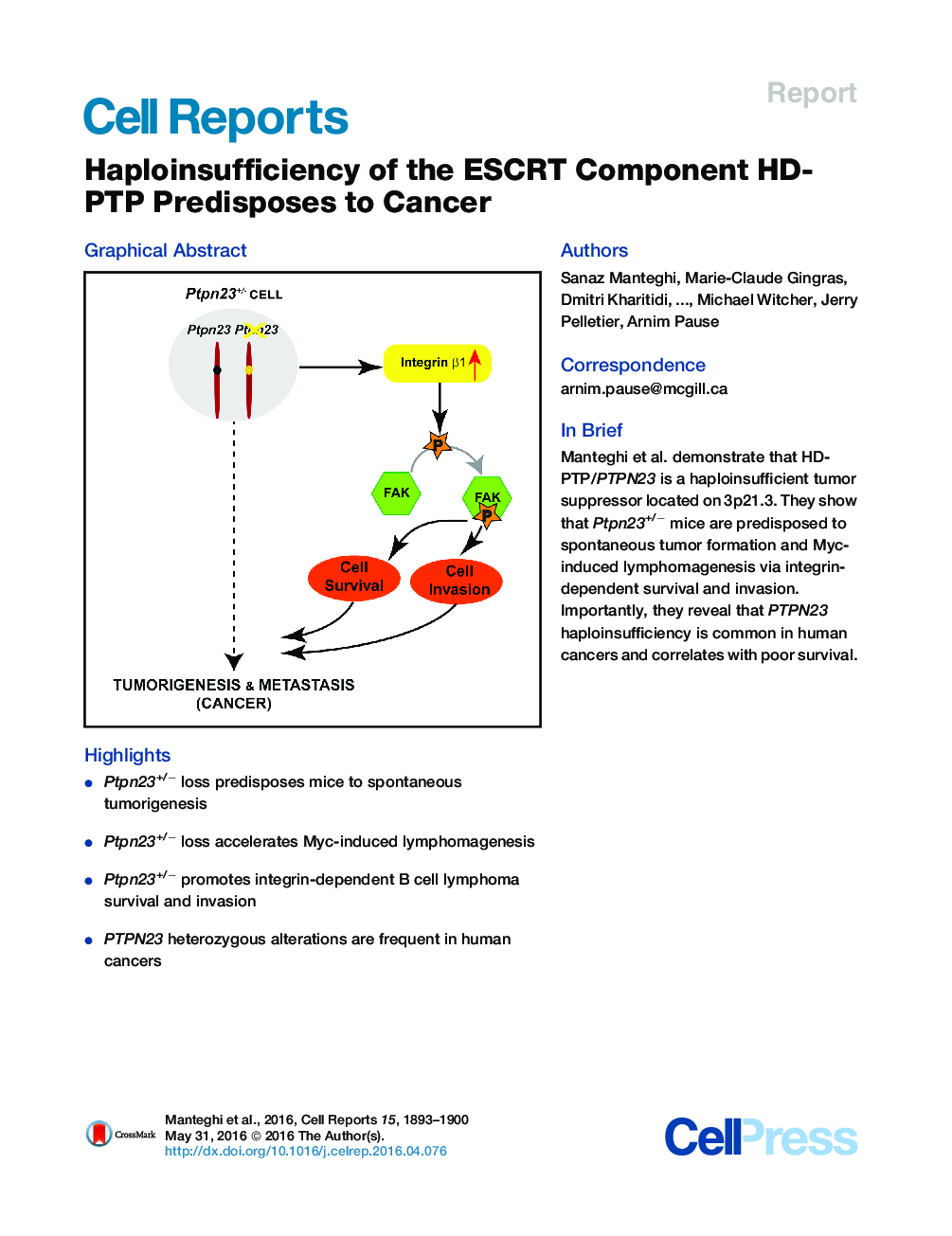| کد مقاله | کد نشریه | سال انتشار | مقاله انگلیسی | نسخه تمام متن |
|---|---|---|---|---|
| 2038982 | 1073002 | 2016 | 8 صفحه PDF | دانلود رایگان |

• Ptpn23+/− loss predisposes mice to spontaneous tumorigenesis
• Ptpn23+/− loss accelerates Myc-induced lymphomagenesis
• Ptpn23+/− promotes integrin-dependent B cell lymphoma survival and invasion
• PTPN23 heterozygous alterations are frequent in human cancers
SummaryEndosomal sorting complexes required for transport (ESCRT) drive cell surface receptor degradation resulting in attenuation of oncogenic signaling and pointing to a tumor suppressor function. Here, we show that loss of function of an ESCRT protein (HD-PTP encoded by the PTPN23 gene, located on the tumor suppressor gene cluster 3p21.3) drives tumorigenesis in vivo. Indeed, Ptpn23+/− loss predisposes mice to sporadic lung adenoma, B cell lymphoma, and promotes Myc-driven lymphoma onset, dissemination, and aggressiveness. Ptpn23+/−-derived tumors exhibit an unaltered remaining allele and maintain 50% of HD-PTP expression. Consistent with the role of HD-PTP in attenuation of integrin recycling, cell migration, and invasion, hemizygous Ptpn23+/− loss increases integrin β1-dependent B cell lymphoma survival and dissemination. Finally, we reveal frequent PTPN23 deletion and downregulation in human tumors that correlates with poor survival. Altogether, we establish HD-PTP/PTPN23 as a prominent haploinsufficient tumor suppressor gene preventing tumor progression through control of integrin trafficking.
Graphical AbstractFigure optionsDownload as PowerPoint slide
Journal: - Volume 15, Issue 9, 31 May 2016, Pages 1893–1900